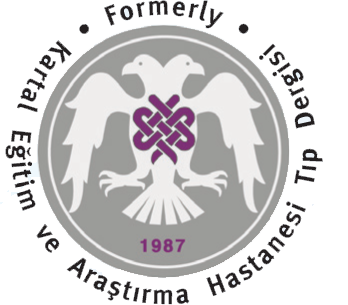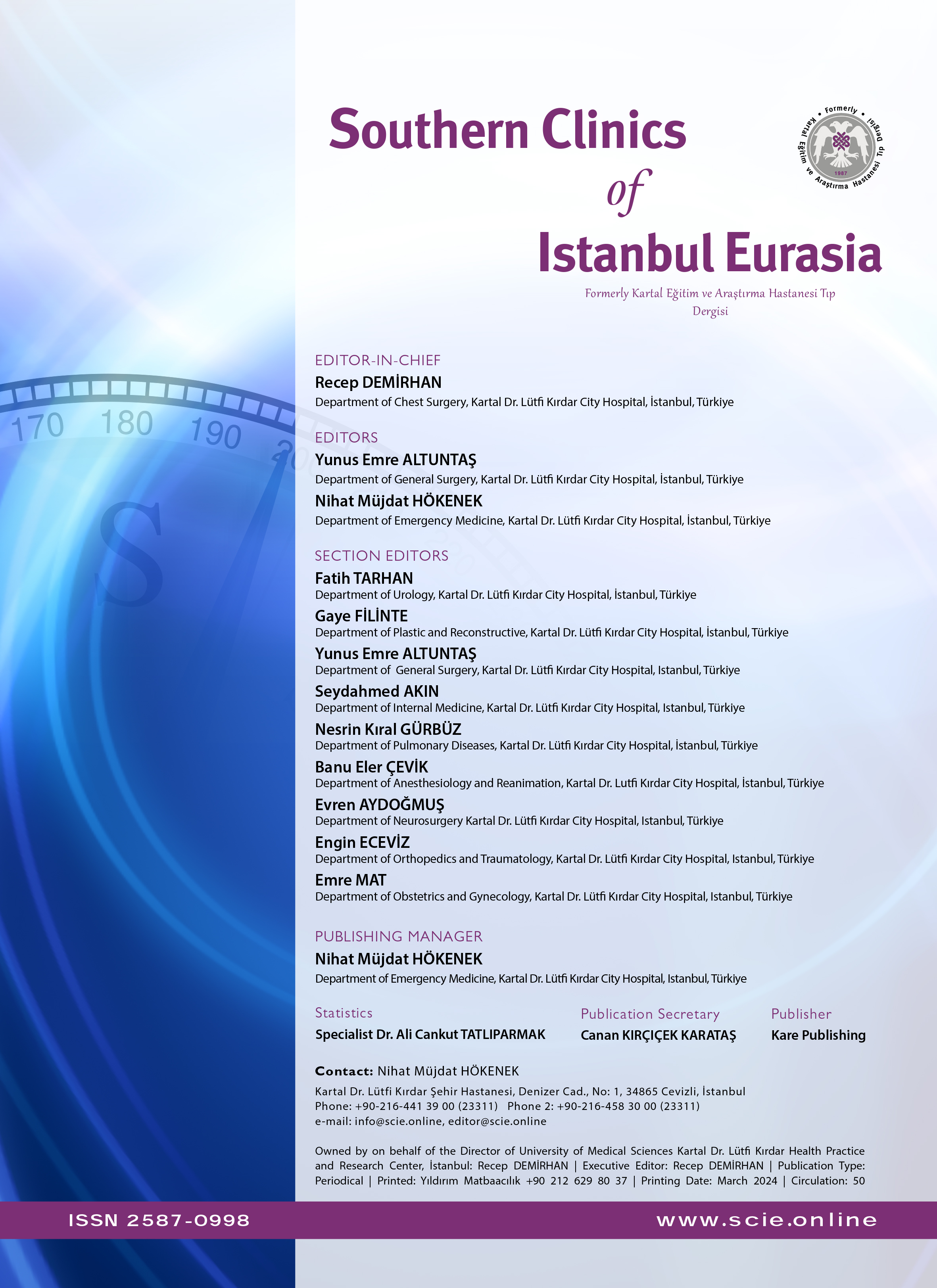Can Preoperative Factors or Operative Characteristics Predict the Duration of Hospitalization and Rate of Complications after Pulmonary Resections?
Tuğba Coşgun1, Berna Duman2, Erkan Kaba11Department of Thoracic Surgery, Demiroğlu Bilim University Faculty of Medicine, İstanbul, Turkey2Department of Chest Disease, Demiroğlu Bilim University Faculty of Medicine, İstanbul, Turkey
INTRODUCTION: Preoperative pulmonary and cardiac function tests and some characteristics of the patients and surgery may predict operative outcomes after resection for lung cancer. In this study, we aimed to analyze the effects of these parameters on short-term outcomes.
METHODS: This is a retrospective study, including 117 patients who underwent surgical anatomical resection due to lung cancer and carcinoid tumor at a single center between January 2018 and September 2018. In this study, body mass index, forced expiratory volume in 1 sec (FEV1), transfer coefficient of the lung for carbon monoxide (KCO), ejection fraction, mean pulmonary artery pressure, and neoadjuvant treatment were evaluated and categorized into groups. Logistic regression and KruskalWallis analysis were used to determine the predicted effects of the parameters on the duration of hospitalization and general complication rates. The patients who underwent major chest-wall reconstructions were excluded from this study.
RESULTS: The series comprised of 72 males and 45 females, with a mean age of 63.8±9.8 years. Most patients underwent a lobectomy (n=87; 61.5%). The evaluated parameters were not related to the duration of hospitalization and general complication rates. However, neoadjuvant treatment and preoperative low FEV1 were significantly related to occurring postoperative pneumonia.
DISCUSSION AND CONCLUSION: Over the limits of safety, which have been well known, preoperative pulmonary and cardiac functions did not predict the duration of hospitalization in patients who underwent resections for lung cancer. Postoperative pneumonia was related to the neoadjuvant treatment and relatively lower preoperative FEV1. The longer duration of hospital stay was the only parameter related to open surgery.
Preoperatif Faktörler veya Operatif Özellikler Akciğer Rezeksiyonları Sonrası Hastanede Yatış Süresini ve Komplikasyon Oranını Öngörür mü?
Tuğba Coşgun1, Berna Duman2, Erkan Kaba11Demiroğlu Bilim Üniversitesi, Göğüs Cerrahisi Kliniği, Istanbul, Türkiye2Demiroğlu Bilim Üniversitesi, Göğüs Hastalıkları Kliniği, Istanbul, Türkiye
GİRİŞ ve AMAÇ: Akciğer rezeksiyonu uygulanan hastalarda preoperatif pulmoner ve kardiyak fonksiyon testleri ve hastaya ve cerrahiye ait özellikler operasyon sonrası sonuçları etkileyebilmektedir. Biz bu çalışmada bu parametrelerin ameliyat sonrası kısa döneme etkilerini değerlendirmeyi amaçladık.
YÖNTEM ve GEREÇLER: Bu çalışmada, Ocak 2018Eylül 2018 tarihleri arasında akciğer kanseri ve karsinoid tümör sebebiyle kliniğimizde rezeksiyon uygulanan 117 hasta geriye dönük olarak değerlendirildi. Vücut kitle indeksi, 1. saniyedeki zorlu ekspiratuvar volüm, karbonmonoksit difüzyon testi, ejeksiyon fraksiyonu, ortalama pulmoner arter basıncı ve neoadjuvan tedavi bilgileri değerlendirilip gruplara ayrıldı. Lojistik regresyon ve Kruskal-Wallis analiz hastanede kalış ve ameliyat sonrası komplikasyonlar üzerine etkileri saptamada kullanıldı. Majör göğüs duvarı rezeksiyonu yapılan hastalar çalışmadan dışlandı.
BULGULAR: Çalışmaya ortalama yaşı 63.8±9.8 olan 72 erkek ve 45 kadın alındı. Hastalara sıklıkla lobektomi ameliyatı uygulandı (n=87; %61.5). İncelenen parametreler hastanede yatış süresi ve genel komplikasyon oranlarını etkilemedi. Ancak neoadjuvan tedavi, düşük FEV1 değeri, ameliyat sonrası pnömoni sıklığı ile ilişkili bulundu.
TARTIŞMA ve SONUÇ: Güvenli sınırlar içinde ameliyat öncesi akciğer ve kalp değerlendirme testleri hastanede yatış süresini öngörememiştir. Pnömoni gelişimi neoadjuvan tedavi ve düşük FEV1 değeri ile ilişkili çıkmıştır. Hastanede yatış süresini ise etkilen tek parametre açık cerrahi olmuştur.
Corresponding Author: Tuğba Coşgun, Türkiye
Manuscript Language: English



















